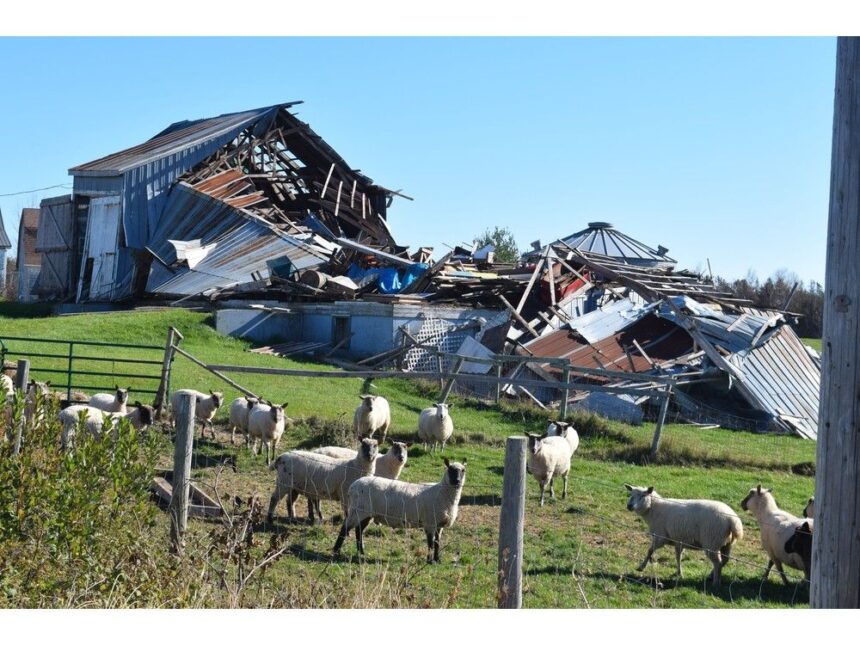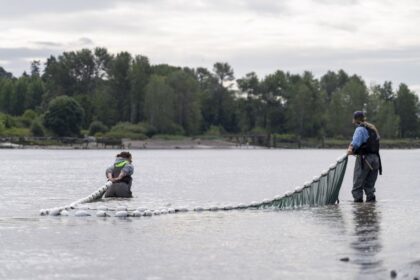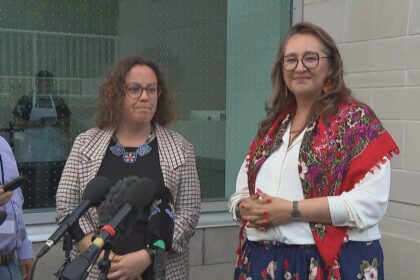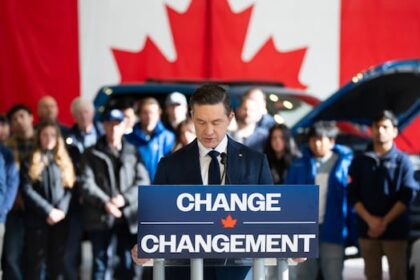Published Jul 07, 20256 minute readA barn not far from River John was badly damaged during post-tropical storm Fiona in 2022. Photo by Adam Macinnis /The NewsArticle contentThe newly elected Halifax MP does not accept the idea that the planet has passed the point of no return in its failure to curb global warming.THIS CONTENT IS RESERVED FOR SUBSCRIBERS ONLY.Subscribe now to access this story and more:Unlimited access to the website and appExclusive access to premium content, newsletters and podcastsFull access to the e-Edition app, an electronic replica of the print edition that you can share, download and comment onEnjoy insights and behind-the-scenes analysis from our award-winning journalistsSupport local journalists and the next generation of journalistsSUBSCRIBE TO UNLOCK MORE ARTICLES.Subscribe or sign in to your account to continue your reading experience.Unlimited access to the website and appExclusive access to premium content, newsletters and podcastsFull access to the e-Edition app, an electronic replica of the print edition that you can share, download and comment onEnjoy insights and behind-the-scenes analysis from our award-winning journalistsSupport local journalists and the next generation of journalistsRegister to unlock more articles.Create an account or sign in to continue your reading experience.Access additional stories every monthShare your thoughts and join the conversation in our commenting communityGet email updates from your favourite authorsSign In or Create an AccountorArticle content“I don’t think that it’s too late,” Shannon Miedema said Sunday.Article contentArticle content“I understand what David Suzuki is saying and the science and how we continue to fail to meet our targets and that the state of the world is kind of gloomy, but I also know that we can do a lot when we want to, together,” said Miedema, who claimed 63 per cent of the counted votes in the Halifax riding in the April 28 federal election.Article contentArticle contentSuzuki, an ageless Canadian author, activist and champion of environmental protection, articulated his pessimistic global outlook in a recent interview with iPolitics.Article content“Public concern in the late 1980s was right at the top and we had the first international conference on the atmosphere in 1988, where there were 300 people, over 40 governments, environmentalists, scientists, private sector people,” Suzuki, 89, told iPolitics.Article content“At the end of that conference, they said global warming represented a threat to humanity, second only to global nuclear war. If the world had followed the conclusions from that conference, we would not have the problem we face today and we would have saved trillions of dollars and millions of lives.Article content“Now, it is too late.”Article content Halifax Liberal MP Shannon Miedema celebrates after her victory in the 2025 federal election on April 28, 2025. Photo by Ryan Taplin /THE CHRONICLE HERALDArticle contentNot if people work together, says Miedema, who for more than a dozen years was director of environment and climate change for Halifax Regional Municipality and who, since being elected federally, has taken on a role on the 10-member parliamentary standing committee on environment and sustainable development and a part in the reignited all-party climate caucus first initiated by Elizabeth May.Article contentArticle content“In my past life when I was working for the city, the way that we moved things forward was when we found common ground and worked on what we agreed were really critical issues together, making the environment and the economy not be at odds with each other, Shannon said.Article contentArticle contentPrime Minister Mark Carney has presented a push to make Canada the world’s leading energy superpower, which he says will be defined by energy security, trade diversification and long-term competitiveness.Article contentMiedema said that vision can be consistent with environmental goals.Article content“From my perspective, we have a lot of opportunities on clean energy, particularly here in Halifax, in Nova Scotia and Atlantic Canada,” she said. “We have a lot of offshore wind potential and that work has been going on for years now. The regional environmental assessment for offshore wind is complete federally.”Article contentMiedema said a huge focus will be electricity transmission across the country and clean energy.Article contentShe said Carney has emphasized a commitment to climate objectives and how clean energy projects are a “really big part of getting us out of the position we’re in with the United States and to think about our energy resilience, our energy security and also our economic development.” Article contentRobin Tress, a longtime climate justice advocate and organizer, said she can relate to Suzuki’s feeling of hopelessness.Article content“He’s in his 80s, he’s been working on climate action his entire life, and now we’re here, there’s smoke in the skies from fires across the country, there are heat waves in Halifax like we’re not supposed to have, we’ve all lived through hurricane Fiona, and now we’re here.”Article contentTress said Suzuki’s sense of despair is borne from a lifetime spent in the midst of what she describes as neo-liberal economics, in which public funds are used to create private wealth for a very small number of people.Article contentArticle content Robin Tress, a longtime climate justice advocate and organizer, says the battle to save the planet from the ravages of global warming is far from over. Photo by ContributedArticle content“That relates to climate change because it creates the way that corporations operate and the way they relate to government and regulations,” Tress said. Article content“When your whole economic system is based on moving public wealth into the hands of private entities and people, that’s how we end up with Elon Musk being so powerful that he can briefly run the White House and that’s how you end up with (Canadian grocers) fixing the price of bread for decades while the rest of us are struggling to make ends meet.”Article contentTress said that’s not the only way to organize the world.Article content“That economic system is completely breaking,” she said. “You don’t have to be an economist to know that having billionaires, period, while the vast majority of people around the world are either struggling to pay rent or struggling to have a good life or struggling to live, that’s not right.”Article contentArticle contentTress remains optimistic.Article content“I feel differently than (Suzuki) does,” she said.Article content“I don’t think the game is over. . . . Right now is a moment where a lot of people are recognizing actively that moving public wealth into private hands is bad and that could change very, very quickly. In the 1920s and 1930s, for example, people were living in incredible economic depression but by the time the 1940s rolled around we had full employment, we had a welfare system and income supports, and we had massive public intervention in the economy, which resulted in things like health care and support for people with children and all of the social safety nets that we have now.”Article content Environmentalist David Suzuki in 2019. Photo by Sean Kilpatrick /Sean KilpatrickArticle contentTress said her goal is to invite people to join in and actively organize to end the economic system “that takes our public wealth and sends it on a one-way train to billionaires’ pockets, never to be seen again.”Article contentIn Calgary last week at the Stampede, Carney said he’s confident that two proposed oil and gas projects – a new pipeline to the British Columbia coast to facilitate oil exports and a massive carbon capture network pitched by a group of oilsands operators – could make it onto the government’s major projects list.Article contentCarney’s statement comes in the wake of recently passed Bill C-5 that expedites projects of national significance and removes internal trade barriers.Article content“The role of the federal government in the legislation on the nation-building projects is to move more quickly in the approval process, not to fund the project, not to spearhead a particular project,” Miedema said, adding that she is not aware of any company that wants to build a gigantic pipeline project.Article contentMiedema says expedited projects don’t equate to less environmental oversight.Article contentArticle contentGovernment processes can over time get clunky and inefficient and there are always opportunities to optimize them, she said.Article content“The idea that an approval for a project takes six years, is that acceptable? Can it be done in half the time?” Miedema said.Article content“Because there is a federal process separate from a provincial one for environmental assessment, if there are ways to have those happen together that reduces some of the overlap that may be happening, I think that’s a good thing.”Article contentMiedema said there is a need for investment in capital projects across the country to build the economy.Article content“We need to do it intelligently, we need to do it in consultation with the Indigenous population and we need to do it while adhering to our environmental responsibilities.”Article contentArticle contentMiedema said the Trump administration’s move to dismantle or reverse much of previous United States environmental regulation and policy that tackled global warming is a “dire” situation.Article content“This is what I heard on the doorsteps (campaigning). People are shocked, sad, mad, upset about what’s happening in the U.S.,” she said. “The United States has been like a family member to Canada, we all have friends or family or experiences there. To see such dramatic shifting is really upsetting.”Article content“There are a lot of opportunities for Canada in this,” she said, alluding to diversifying global trading partners and attracting American professionals in different fields to cross the border.Article content
Not too late to stem the tide on global warming devastation, Halifax MP says











